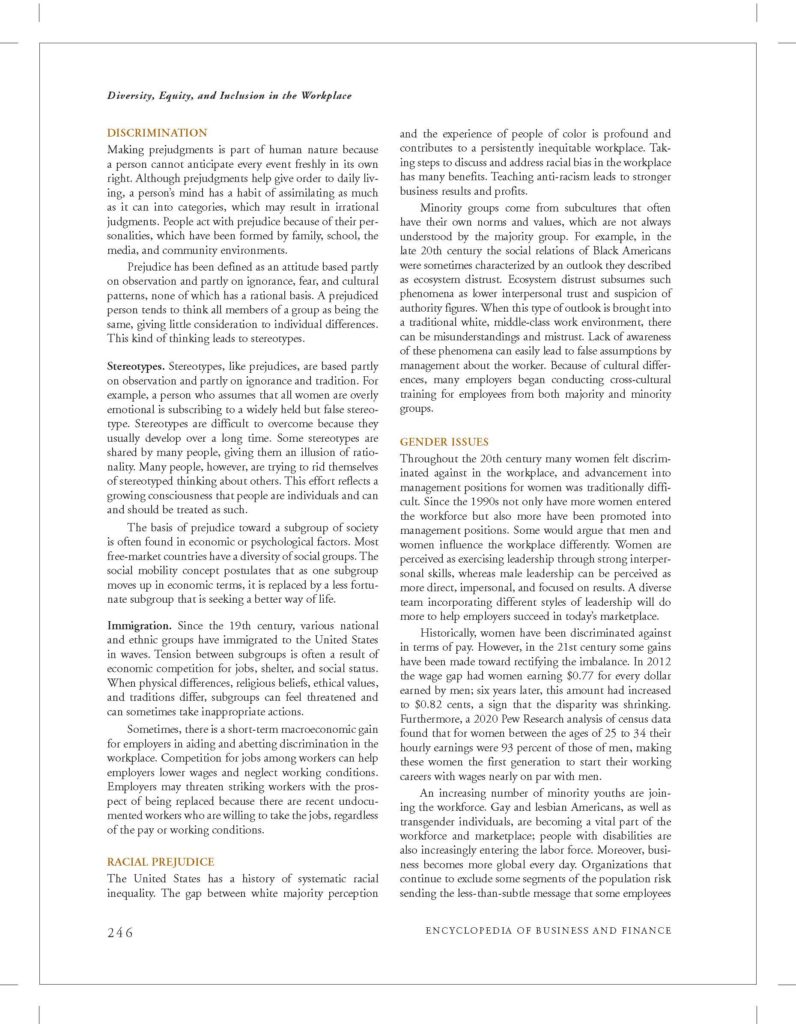| By Gale Staff |
“Access to diverse collections encourages self-determination and growth for unique individuals who are seen, valued, and reflected in their surroundings.”1
Stark County District Library (Canton, Ohio)
Libraries around the world are strengthening coverage of diversity, equity, and inclusion (DEI) in their collections. Gale is too—we’ve been doing it for a while. Throughout 2021 and into 2022, content developers of Gale’s business products bolstered efforts to increase the coverage of organizations owned by or focused on people of color, women, and members of the LGBTQIA community. In addition, more titles now highlight organizations committed to providing inclusive and diverse workplaces and practices. This focus on DEI is evident in just about every one of Gale’s business products.
Ward’s Business Directory added 175 minority-owned companies and 166 women-owned companies to the 2021 edition, while the Encyclopedia of Associations added 139 anti-racism and social justice organizations as well as 250 LGBTQIA organizations to its latest volume. DEI was one of the main focus areas for the upcoming Encyclopedia of Business and Finance, which publishes in early 2022. Entries such as “Corporate Social Responsibility” and “Diversity, Equity, and Inclusion in the Workplace” received significant updates that examined DEI challenges and benefits, racial prejudice, gender issues, and the changing face of America.
Gale Business Insights: Global further illustrates the heightened focus on DEI in Gale’s business products. A simple keyword search on “inclusion and diversity” produces over 30,000 articles from academic journals, magazines, and trade journals that explore DEI. Topics include diversity in the workplace, multiculturalism in education, DEI as a business strategy, among others.
“In July 2020, the department adopted a formal set of guiding principles . . . with a goal of creating more inclusive metadata.”2
Duke University Libraries (Durham, North Carolina)
This enhanced content is great—if the user can find it. Libraries across the world are stepping up efforts to remodel and improve their metadata. And so are we. The Business Content team recently kicked off an extensive review of its content metadata, with the goal of standardizing and updating subject coding to increase discoverability in our business products.
The Directory of Special Libraries started this process in 2021. Many of its entries have strong collections on topics like social justice and civil rights, but limited and antiquated subject terms can make these collections difficult to find. Building up the metadata will help the user track down the materials they’re looking for. It might help them find materials they didn’t know existed.
Best of all, stronger metadata will enhance the Gale Directory Library. This platform allows users to search our business directories, which focus on a myriad of topics, including market research, health care, higher education, publishing, and government. It offers a wide range of data sorting and filtering—and with improved metadata, customers will find this resource even more helpful than before.
“As librarians, we are frequently asked ‘How do I find books by trans scientists?’ or ‘How do I research what it’s like to be a black engineer?’ . . . While there is increasing interest in these types of works, they remain difficult to find, recommend, and purchase. This is frustrating for educators and librarians, but especially for readers who want to see diverse experiences and cultures reflected in media and education.”3
Iowa State University Library (Ames, Iowa)
The main reason we’re increasing our DEI coverage is because it’s the right thing to do. But there’s a bonus: It makes good business sense. More and more college students today are not only seeking this information, but they’re also expecting it. Educational publishers who produce the same old content from the same old voices risk finding themselves left behind.
The International Directory of Company Histories is another product on the Business and Content team that increased its DEI coverage in the past year. Two volumes in 2021 highlighted Black-owned companies and women-owned companies. Histories in all its essays will now explore environmental and social justice initiatives a company has undertaken, as those are as much a part of a company’s history as any merger, acquisition, or product launch.
An employee engagement study by the Boston-based firm Cone Communications reported that 64 percent of millennials consider a company’s social and environmental commitments when deciding where to work—and the study was released in 2016, so that percentage has almost certainly gone up. Most college students who pick up the International Directory of Company Histories to research a company will be hoping—probably expecting—to find narrative information that goes beyond important dates, revenue milestones, and biographies of the company’s founders. Today’s users will want to know how a company is helping the underserved and the community at large. And if this directory doesn’t tell them, they’ll likely look for another source that will.
Scholarships, Fellowships and Loans also boosted its DEI coverage: 1,638 awards targeting diverse and inclusive affiliations were updated in the latest volume. Numerous recent studies indicate that minority students disproportionately bear the weight of student debt. While no reference directory will come close to solving this problem, this guide is one place where underserved students can go to discover what financial aid is available to them.
It’s good to get all this content into our products, but we’re not really doing anything special. We’re responding to what the market wants today. And what the world wants today. This is long overdue. The drive to strengthen DEI content won’t be slowing down, so look for more of it in Gale business products in 2022 and beyond.
1. Del Corso, Megan. “The Value of Diversity in Library Collections,” Stark Library blog, November 19, 2021.
2. “Diversity, Equity, and Inclusion Initiatives,” Duke University Libraries, accessed December 2021.
3. “Librarians Shine a Light on Diversity, Equity, and Inclusion Practices and Opportunities at ISCORE 2021,” Iowa State University Library, March 3, 2021.



